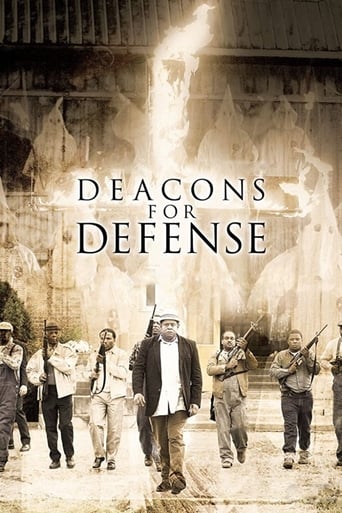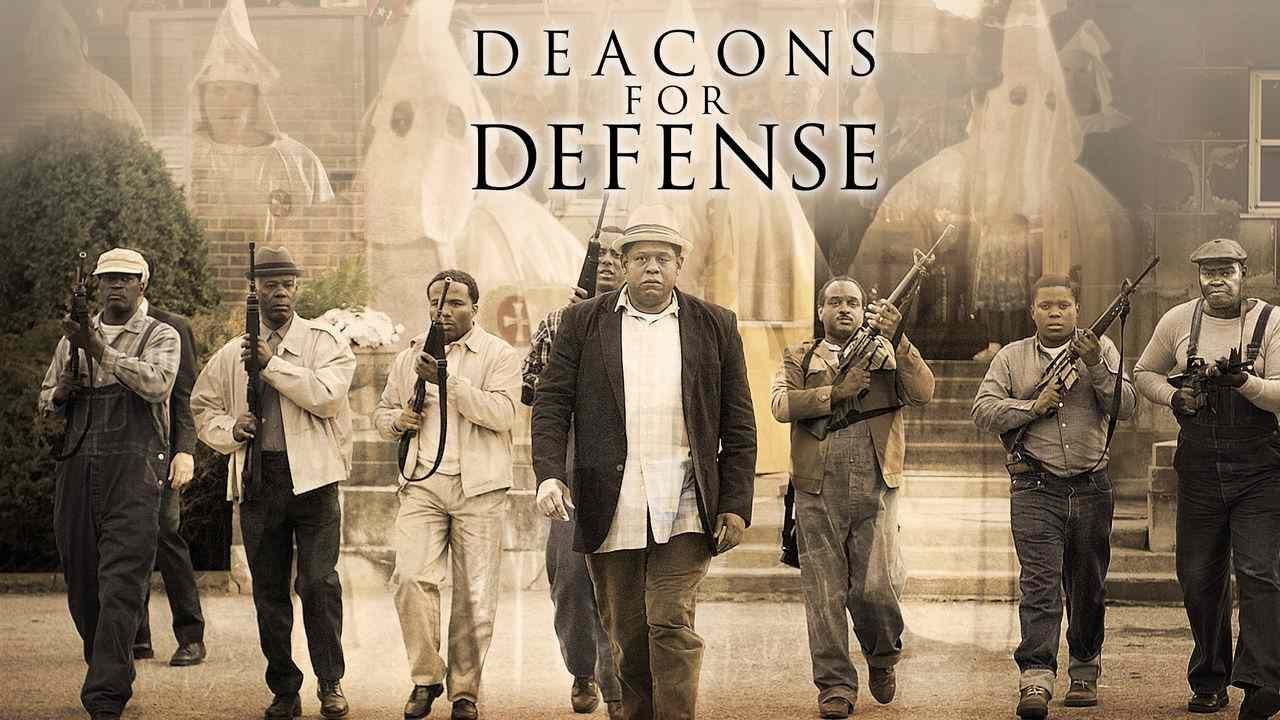Cky4Life
Before I saw this picture,I had always thought blacks in general always allowed the white man to terrorize their homes,people,and neighborhoods. I even became ashamed over time of being of black descent. Reason being,I felt and thought that blacks were to frightened to even stand up for themselves the way strong,brave,and courageous people do. I even developed a disdain for the black man which in turn made me a serious threat towards any white with violent intentions towards blacks. I was a ticking time bomb for awhile.Then a friend approached me about a film he thought I would like. And I sure did. It reassured me that some,if not most blacks did in fact have the courage to stand up and defend themselves and their families. Truly a very informative film. I am not a racist,nor do I hate anyone because of skin color. But I now know I am not alone in my mindset of defend myself and loved ones at ALL costs.sincerely,Black Sicilian
The Gryphon
I was born in Bogalusa, Louisiana (the lumber town depicted in "Deacons for Defense") and lived through the events depicted in this movie. I can attest to the fact that it is very factually recounted. The tension between the blacks and the whites during that time were very high and emotionally charged. As a child I was taught by my Klansman father that black people were to be hated. For whatever reason that never really rang true to me and I refused to hate. It's so strange to look back objectively on a movie like this that reopens those old wounds. It's about the black citizens of Bogalusa who form a group intending to protect themselves from the bigotry that envelops the city and the tough choices they had to make going into this situation with little or no backup from the city police or the elected politicians in the area. It's really a very good movie.
Ddey65
In 1964 and 1965, Lyndon Baines Johnson signed important legislation abolishing segregation. That doesn't mean that Southern communities were willing to let go of their Jim Crow laws, and civil rights demonstrators knew this for a fact. But not everyone was willing to lay down dying and begging for mercy they never would've had from white supremacists in the fight for equality. Knowing this, some black men were willing to arm themselves and retaliate against Klan violence, and this movie is about one such group of black war veterans who choose to do so.Forrest Whittaker plays Marcus Clay, a middle-aged black man working at a paper mill in Bogalusa, Louisiana. For some reason, most of the white folks think they can rely on him to keep other African-Americans from seeking equality, whether it involved making sure other black co-workers don't seek a promotion, or keeping his determined teenage daughter from join the CORE voting drive. When she's attacked by the police during a civil rights march, he finally decides to take action against them, and when he takes her home to reprimand her, she makes him realize that in the eyes of whitey, he's no better than any other person of color. That's when he decides he's going to team up with his neighbors, congregation, and fellow employees and form their own anti-KKK militia.Unlike the Black Panthers who's membership consisted of a mix of young atheists, Marxists, and Muslims in paramilitary uniforms, the Deacons were middle-aged and old men who were as patriotic as any other American, and were just tired of being punished for seeking their fair share in life. They're also not intimidated by the fact that the boss of the mill is also an Exhalted Cyclops of the local KKK chapter, and neither is the C.E.O., who demands that they give-in to demonstrators and end their discriminatory hiring practices. Throughout the movie the local civil rights organizers played by Jonathan Silverman & Adam Weiner make it clear they want nothing to do with the Deacons. After all, they're about non-violence, and the Deacons are about violent retaliation. Eventually, they realize they may need them no matter how much they oppose their principles. The movie switches from color to black and white, as you'd expect, and occasionally uses footage from more famous civil rights marches like Birmingham and Selma, Alabama, but this can be forgiven. There are times you'll swear it's about to go into a heroic martyrdom cliché, but it doesn't. One foreman/Klansman sniper keeps trying to get a shot at Marcus, but loses the chance to do so. Even the showdown at the end doesn't result in the death of any black or white men. And I wouldn't DARE reveal anything else about the ending. Rent this movie, buy this movie, or demand that your local video store make multiple copies available, because this is much too good for anybody to ignore.
Lexuses71
I saw this excellent film and was so impressed with the performances. Forrest Whittaker, in one of his strongest roles, proves once again he is one of the most under appreciated actors working today. In a town of Louisiana in 1964, at the dawn of the Civil Rights movement, he portrays a hard working man who, as a spokesperson for the Black workers in a local paper mill, is simply trying to survive in a United States that refuses to recognize a Black man's truth worth and self dignity. This small town in Louisiana of this time period is very oppressed, racism is overt, the Klu Klux Klan is a dominant force, many of the police are in the Klan, and Whittaker's character wearily knows his place, that he and his brethren will never rise above the oppressive segregation that stifles them and their families each and every day. Two things happen to spur action here. When one of his co-worker friends is beaten by the local white powers that be for simply adding his name on a posted list at work for consideration for a promotion to Supervisor, and 2 white Civil Rights workers (one played impressively by Jonathan Silverman) come to town to help raise consciousness and organize the Black locals for non-violent demonstrations, Whittaker-out of necessity-evolves into a man of purpose (and action). He and his friends form a covert group of armed military man called the "Deacons Of Defense" to protect fellow Blacks from the racist police and covert mill workers who are dead set against any integration. What knocked me out at the core of this film was the uneasy alliance/relationship between Silverman, who, as a young idealist, sincerely wished to promote a non-violent agenda, and Whittaker, who knew the only way to preserve and survive was to arm and fight the white power structure on the same terms as they did. When Silverman (and his Civil Rights coworker) get badly beaten as "nig--r lovers" by the racist locals, and the federal government announces that all forms of segregation must be abolished (per Lyndon B. Johnson's mandate), a final confrontation occurs between the white KKK supremists and the Deacons. The law now reads "local law enforcement officials MUST protect Black citizens". But will they? It is chilling for a TV film to create this level of tension, yet there is a balance in characterization, considering the touchy subject matter. Director Bill Duke shows his flair, style and sensitivity to the historical content. He filmed this explosive film in a quasi-documentary style, using some very disturbing footage, and black and white photography that makes you feel you are there. This material, while little known, was treated with utmost respect and factual data. Ossie Davis is wonderful as the local minister, who grows to finally understand that there is no recourse but to support what the Deacons are doing. And as the previous reviewer well noted, the man just cannot give a bad performance. Supporting roles were well casted and portrayed. But it is Whittaker's show all the way. I feel this film is so relevant today; it needs to be seen by all youth. Actually, everyone should see this movie. It's that moving. A must see film.


 AD
AD



